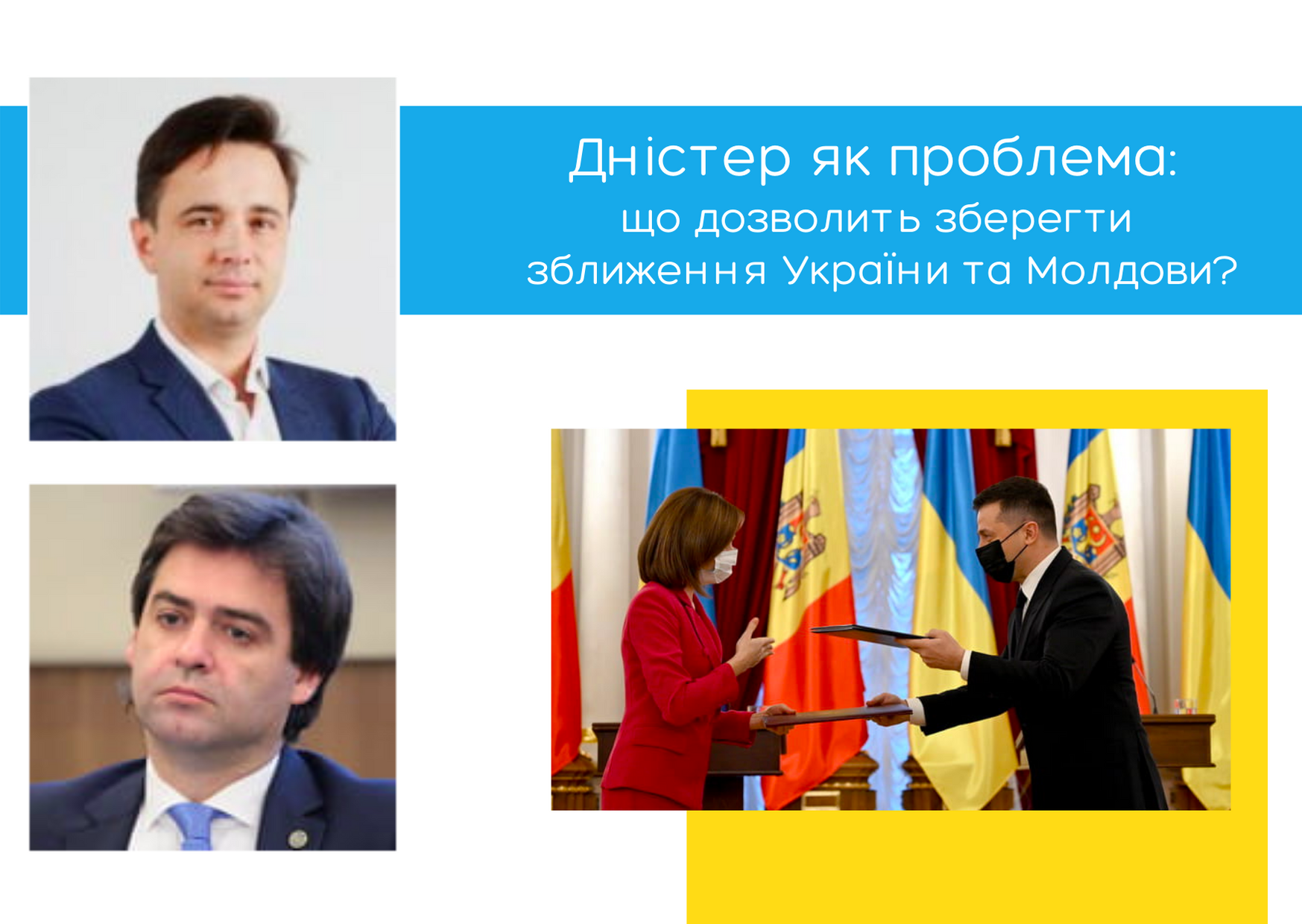Joint article by Leo Litra and Nicu Popescu for the Romanian think tank IPRE on the problems in relations between Ukraine and Moldova, and ways to solve them. The paper is available in English, Romanian and Ukrainian.
Chișinău and Kyiv have been going through a rapprochement lately. Presidents Maia Sandu and Volodymyr Zelenskiy are determined to improve relations between the two countries. This high-level impulse can certainly improve relations, but they still need to navigate several under-water rocks that have complicated the relationship before.
—
Relations between Ukraine and Moldova have had their ups and downs in recent years. The efforts of the two countries to work more on their bilateral agenda and regional security have been hindered by many difficulties, including by Moldova’s former president Igor Dodon who questioned Ukraine’s territorial integrity, but also the smuggling of goods taking place on the Transnistrian perimeter of the Ukraine-Moldova border and the problems in the bilateral relations that have been inherited from the collapse of the Soviet Union.
The election of Maia Sandu as president of Moldova unlocked the high-level dialogue between the two countries and rehabilitated the partnership as Sandu chose Kyiv for her first state visit abroad placing high on the agenda the relations with Ukraine. Presidents Maia Sandu and Volodymyr Zelenskiy seem to have a lot of mutual sympathy and a great personal relationship. But there is more to this relationship that sympathy. They both have been elected with overwhelming political mandates to shake up the corrupt structures that have dominated both Moldova and Ukraine for decades, and both are facing major resistance from vested interests.
Such personal and political considerations can help but will not automatically solve several bilateral problems that obstructed relations so far. These problems mainly refer to environmental issues on the river Dniester, border demarcation, property ownership on the territory of both states, energy and other issues.
One of the most delicate of these is a set of problems related to the Novodnestrovsk hydro power complex which is just upstream on river Dniester from Moldova. On these, as seen from Kyiv, Ukraine has an interest to develop its own hydropower capacity and improve its energy security, but from a Moldovan standpoint Dniester is the single biggest and irreplaceable source of water for the country. There are strong fears in Moldova that the further development of electricity generating infrastructure in Novodnestrovsk will deprive Moldova (as well as the Odesa region) of vital water resources. Dniester is not a very large river compared to Dnieper or Danube for example, but hosts one of the biggest hydro power complexes in the world. Ecologists in both countries underline that the over the last ten years Dniester already degraded. And Novodnestrovsk is not even operating at full capacity. Moldova also needs to solve its part of the problem which is mainly related to the lack of the wastewater treatment plan for Soroca and thus worsening the ecology of the river. In order to find a way out of this conundrum the sides have discussed the possibility of EU involvement in managing this thorny issue so that the river unites the countries.
The leadership change in Moldova and Ukraine altered the atmosphere in relations from negative to cautious optimism and subsequent greater openness. In order to give more substance to the relations between Kyiv and Chișinău, the two leaders need to intensify their contacts and follow-up on their previous agreements. The launch of the announced joint presidential committee would strengthen the cooperation and focus on practicalities.
Ukraine and Moldova already proved they could implement significant projects when both countries act together. The construction of the modern joint cross-border point in Palanca is one of the examples of what countries could do in order to ease the contacts between people. The joint control also became functional at Cuciurgan cross-border point on the Transnistrian perimeter of the Ukraine-Moldova border. The extension of the joint control to the entire border would facilitate business and people to people contacts. In the same context, a new bridge over Dniester which would result in a shorter route from Kyiv to Chișinău is being constructed following the recent agreement between Zelenskiy and Sandu.
Such projects suggest that despite problematic issues, Moldova and Ukraine share a much more fundamental set of shared interests related to their own security and European integration. Just recently, Moldova and Ukraine (as well as Georgia) came with a joint set of priorities for the future of the Eastern Partnership, in which they asked, among other things, to increase security cooperation with the EU. Ukraine is a reliable partner in solving the Transnistrian conflict and since 2014 Moldova supported and co-authored Kyiv’s initiatives in international organizations.
The fundamentals of Moldova-Ukraine relations are that both countries need a strong, pro-European, consolidated and friendly neighbour. Both countries would significantly loose if their neighbor would be hostile and unfriendly. That is providing the two countries with strong incentives to solve their problems and use the great untapped potential. And now is a good time to do so.
—
Leo Litra is a senior research fellow at the New Europe Centre in Kyiv
Nicu Popescu is the Director of the Wider Europe Programme at the European Council on Foreign Relations in Paris.
—
This Op-ed is published by Европейська Правда (Ukraine) and IPN News Agency (Republic of Moldova).
The Op-ed was developed in a partnership between IPRE (Chișinău), New Europe Centre (Kyiv) and ECFR (Paris) researchers in the context of the project “Policy Bridges with the EU: Securing the Europeanization Process of the Republic of Moldova”, implemented with the support of the Soros Foundation Moldova. The views expressed are of the authors only.








